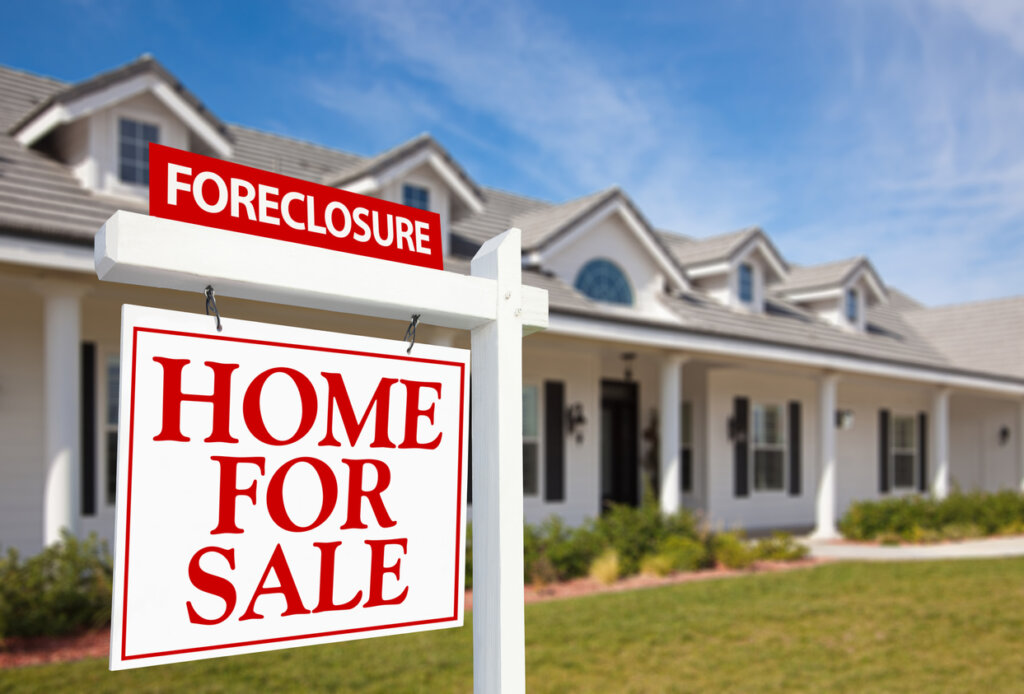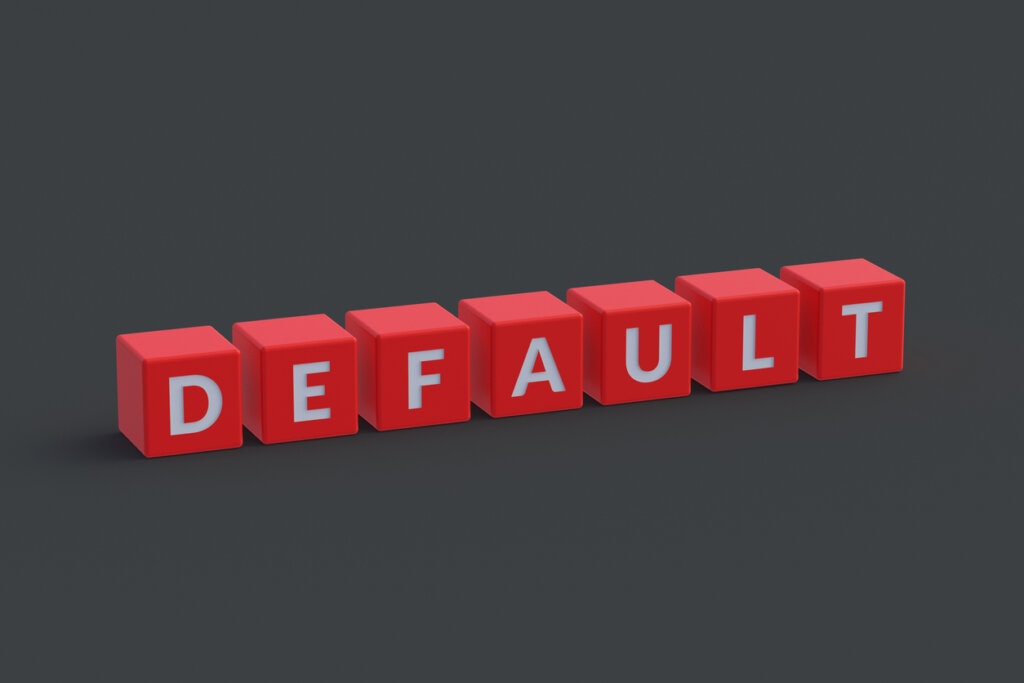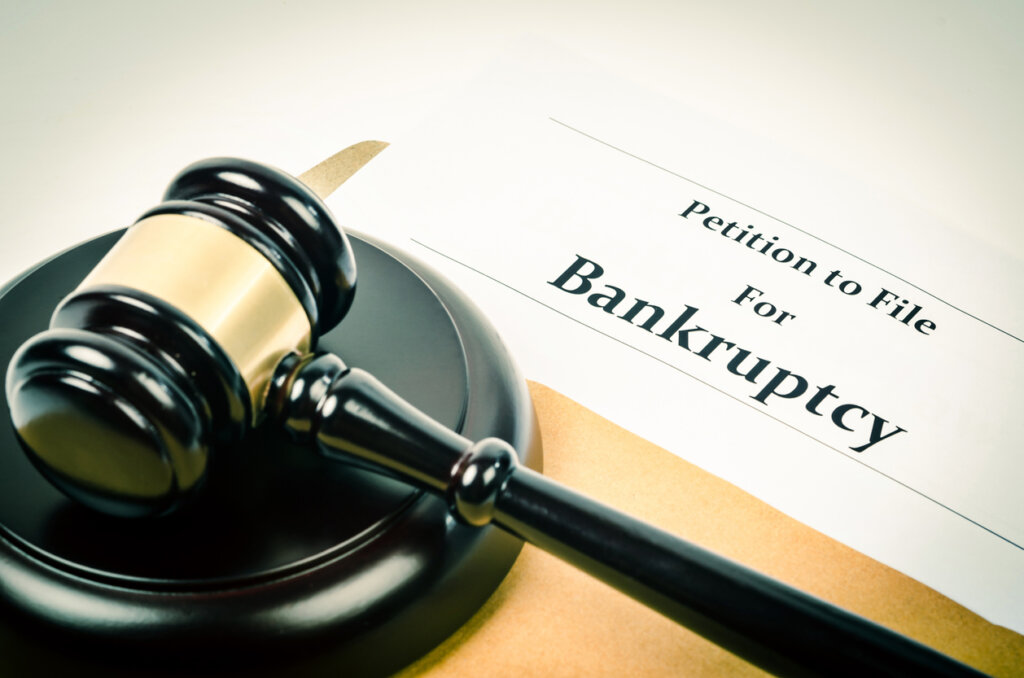Losing your home to foreclosure can be painful. It’s an immensely stressful experience, making you—a homeowner—homeless and ruining your credit rating, as well.
In fact, foreclosed homes were a visible symbol of the 2008 housing crisis, with the number of foreclosures hitting 2,330,483. Fortunately, the number of properties with foreclosure filings was a modest 324,237 in 2022.

Foreclosure is a legal process whereby a lender can repossess your home if the mortgage has not been paid. In case you miss mortgage payments for three months—or a specified period—the lender can normally begin proceedings to repossess your home and resell it.
Contrary to popular belief, house foreclosures don’t happen immediately after you miss your first mortgage payment. Most mortgage lenders are open to working out an alternate payment schedule. Therefore, repossessing a property is frequently the last resort for lenders.
Non-payment of property tax can also lead to foreclosure. Homeowners in Florida have 2 years from the date taxes become overdue (April 1st) before they risk the loss of their home.
In the post-pandemic world, the fear of foreclosure is real.
According to the U.S. Department of Housing and Urban Development (HUD) February 2022 report, 5.28 million homeowner households (6.6 percent) was behind on their home mortgage payments. The fear of foreclosure hangs over 860,000 homeowners (1.08 percent), and they fear it’s imminent in the next two months.
1. Understanding the Foreclosure Homes Process in Florida and the Various Phases of the Process
The foreclosure process in Florida is a legal process that permits a lender to take possession of your home and sell it to repay the outstanding mortgage debt if you default on the loan. The process is governed by state laws.
On June 7, 2013, Governor Rick Scott signed a foreclosure bill into law to speed up the foreclosure process in Florida. Some Florida foreclosure laws are definitely helpful to homeowners, but some of them are detrimental to them too.
Florida has specific rules and regulations that govern the foreclosure process for homeowners in the state. While the specific steps and timelines may vary slightly, the general foreclosure process is as follows:
A. Default:
The foreclosure process begins when you default on the loan. This typically occurs when you miss multiple mortgage payments. Remember, without a missed mortgage payment, foreclosure cannot happen.

However, a tax lien foreclosure is an exception, not the norm. It can happen when you have not paid the mandatory taxes, such as property taxes and federal and state income taxes.
B. Notice of Default:
Once you are in default, the lender will send a notice of default, which informs you that you have a certain number of days to cure the default (pay the overdue amount) before the foreclosure process begins.
Florida is a judicial foreclosure state, wherein the foreclosure process must be handled through the court system. This implies the lender must file a lawsuit in order to foreclose on a property.
In Florida, as a homeowner, you are afforded a lot of protection. After you receive a pre-foreclosure breach letter, you can apply for loss mitigation. While the receipt of a breach letter can seem like an alarming development, timely action on your part can prevent home loss.
Waiting period:
Florida law requires that the lender waits at least 45 days after the notice of default before filing the lis pendens, which is the legal document that starts the foreclosure process.
C. Lis Pendens:
In Florida, a judicial hearing is required for a foreclosure filing.
If you don’t cure the default, the lender will file a Lis Pendens with the county clerk. This is a notice that a lawsuit has been filed and the property is in foreclosure.
D. Foreclosure Complaint:
The lender will then file a foreclosure complaint with the court. This document sets out the lender’s claim that you are in default, and the lender has the right to foreclose on your home.
Under federal law, a lender can’t officially start a foreclosure until you are at least 120 days past due on mortgage payments, subject to some exceptions.
This 120-day grace period provides ample opportunity for you to submit a loss mitigation application to the lender.
Right to Cure
Florida law gives you the right to cure the default (pay the overdue amount) before the foreclosure process can begin. Once the lender sends the notice of default, you have 120 days to pay the overdue amount and stop the foreclosure process.
The 120-day timeframe gives you time to work out an effective way to avoid foreclosure. If you apply for loss mitigation during this time, the foreclosure start date might get extended even further.
E. Summons:
Florida is a judicial foreclosure state, wherein the court system handles the foreclosure process.
The lender files a lawsuit requesting a court order to permit a foreclosure sale. You will be served with a summons, which informs you that a lawsuit has been filed and that you must respond to the foreclosure complaint within a certain number of days.
F. Answer:
You will typically get 20 days to file a written answer with the court.
You can file an answer to the foreclosure complaint, in which you can raise any defenses you have to the foreclosure.
G. Mediation:
Florida law requires that most residential foreclosure cases go through mediation before a final judgment can be entered. Mediation is a process wherein a neutral third party helps the parties in dispute—the lender and homeowner—try to reach a settlement.
During mediation, you need to get the necessary leverage to work out a solution to save your home. For instance, a loan modification would be a workable solution.
Mediation presents you with a chance to obtain favorable terms and allows you to continue staying in your home. An ideal solution would be to modify the loan agreement. Lenders can be intimidating, so working with a neutral third party would ease matters for you.
You need to understand that most lenders look to avoid foreclosure, as the foreclosure process can be expensive and time-consuming. Lenders would rather prefer to continue receiving mortgage payments from you, the current borrower.
You will need to review the terms of the mortgage agreement carefully. Look for elements that provide room for negotiation with the lender and show them that you will work earnestly to remedy the situation.
H. Final Judgment of Foreclosure:
If you do not respond to the foreclosure complaint, or if mediation is unsuccessful, the court will enter a final judgment of foreclosure. If the lender secures a summary judgment, they have the right to take possession of your home and sell it to repay your outstanding mortgage debt.
The Final Judgment of Foreclosure is a major milestone in the foreclosure home sale process. It’s a huge loss for you, especially if you are intent on keeping your home.
The Final Judgment of Foreclosure states the amount you owe to the lender, including the principal, interest, late charges, escrow credit, and attorney’s fees and inspections. The document also shows details of the lien on your home and lists the sale date.
Once the court enters a final judgment of foreclosure, the lender has the legal right to take possession of your home and sell it to repay the outstanding mortgage debt.
I. Sale of the Property:
A Notice of Sale must be published for foreclosed homes in Florida.
The lender needs to publish a notice of the foreclosure sale in a local newspaper once a week for two consecutive weeks. The date of the second publication should be at least five days before the sale.
Foreclosure homes are sold at public auctions, usually held at the county courthouse. The sale proceeds will go toward paying off the outstanding mortgage debt first.
The profits from a foreclosure sale go to the homeowner. If the sale yields profits, the lender cannot keep the excess proceeds above the mortgage balance plus any fees due for the foreclosure process. That is, you will get all the money earned above the balance plus foreclosure costs.
J. Deficiency Judgment:
In foreclosures, a deficiency judgment pertains to a mortgage lender’s judgment against the homeowner after a foreclosure. This judgment is for the difference in the amount between the outstanding mortgage balance, plus attorney’s fees and other costs, and the value of the foreclosed home.
If you are personally served with a foreclosure notice, the lender can obtain a deficiency judgment as part of the foreclosure action. This allows the lender to seek a personal judgment against you for the remaining debt.
Important Note: The foreclosure process in Florida can take several months or even years to complete. The specific timelines and steps may vary depending on the specific case and the court. In addition, it’s recommended to consult with a real estate attorney or a housing counselor to understand the legal and financial implications of foreclosure and explore all the options available to avoid it.
2. Specific Actions You Can Take to If You Think Your Bank May Try to Foreclose on Your Property
Both federal and state laws regulate loan servicing and foreclosure home processes. Most of the laws safeguard the interests of homeowners. Although Florida is a judicial foreclosure state in which courts apply principles of equity (fairness) versus purely legal defenses, you still need to take specific actions to prevent foreclosure of your home.
A. Contact Your Lender:
The lender has to provide you with an opportunity for loss mitigation, account for each foreclosure step, and follow foreclosure laws.
To prevent foreclosure on your home, contact your lender to discuss your options as soon as you know that you will be unable to make your mortgage payments. Your lender may be able to offer a loan modification or other assistance to help you keep your home.
B. Seek Help from a Housing Counselor:
A housing counselor can educate you on the available options and assist you in working with your lender to find a solution. Many organizations offer free or low-cost housing counseling services.
Homeowners in Florida can access housing counseling services through Florida’s Homeowner Assistance Fund (HAF) program. You will be assisted by the U.S. Department of Housing and Urban Development (HUD)-certified counselors in working with your mortgage lender to prevent foreclosure and remain in your home.
A housing counselor will also host one-to-one and group educational workshops on topics such as financial awareness and the importance of good credit.
C. Consider a Short Sale:
A short sale is when the sale price of the property is less than the outstanding mortgage. This option may help you avoid foreclosure and sell your property quickly, but it will have a negative impact on your credit score.
The major advantage of a short sale is it gives you the option to buy another home fairly soon. But a foreclosure will impact your credit score much more negatively.
D. Explore bankruptcy:
If you are unable to find a solution to save your home, you may want to consider filing for bankruptcy. This can provide you with some protection from your creditors and may be able to delay or stop the foreclosure process.

In Florida, you can stop a home foreclosure move by your lender by filing for bankruptcy under the U.S. Bankruptcy Code’s automatic stay provision. When you file for either Chapter 7 or Chapter 13 bankruptcy, the court will pass a stay on all debt collection moves against you.
E. Get organized:
Keep all documents related to the foreclosure and the records of your efforts to work with your lender in one place. When you stay organized, you have a clear picture of your situation. As a result, you can focus better on the task at hand.

Include your loan documents, especially copies of the mortgage agreement and the promissory note. Other documents also include:
- Monthly billing statements
- Record of the mortgage payments made
- Escrow statements (if any)
- Property tax records
- Insurance records
- Correspondence from the lender
- Copies of the letters you sent to the lender.
3. Creative and Last-Minute Actions You Can Take to Sell Your Property Before Foreclosure
Life is unpredictable. And so are missed mortgage payments. It can happen to anyone, anytime. And there are multiple reasons for it—the death of a family member, divorce, health breakdown, or job loss. But the good news is there are different last-minute actions you can take to sell your home before foreclosure. Some of them include the following:
A. Subject to Sale
The meaning of buying subject-to is buying a home subject to the present mortgage on it.
In a subject-to-sale contract, you don’t pay off the existing mortgage. What happens is the buyer takes over the payments. The balance amount of the existing mortgage is calculated as part of the purchase price the buyer pays.
For instance, suppose you have taken out a mortgage for $250,000. You paid $100,000 of it before you decided to sell your home. The buyer would then make mortgage payments on the remaining $150,000.
Under a subject-to-sale contract, the buyer will continue to make payments to your lender’s mortgage company. However, the buyer will not have an official agreement with the lender. Therefore, the buyer is under no legal obligation to make the mortgage payments.
The major downside of a subject-to-sale contract is your home could be lost to foreclosure if the buyer fails to repay the loan. Although your home will be in the buyer’s name, the loan will be in your (the original mortgagee’s) name.
B. Loan Takeover
Loan Takeover (or Loan Transfer) is another possible option to avoid foreclosure. If you’ve fallen behind on your mortgage payments, you can sign your home deed over to a new buyer. The new owner will assume your loan and becomes responsible for your mortgage debt.
A loan takeover is especially effective when you inherit a mortgaged home or get ownership due to a divorce or intra-family transfer, but you can’t afford the payments. A loan takeover can also be part of a loan modification that allows you to keep the home.
The problem with loan transfers is that they aren’t allowed with most mortgages. Only FHA (The Federal Housing Administration) and VA (The U.S. Department of Veterans Affairs) loans are eligible for loan transfers, but most lenders of conventional mortgages don’t allow loan transfers.
C. Sell Your Home to a Home Buying Company (Home Seller Heaven)
Home-buying companies purchase houses for cash. The key advantage of dealing with such companies is you can complete the sale transaction in less than seven days. The only downside is these companies will generally offer less than fair market value for your home.

When you sell your home to a home-buying company in Florida like Home Seller Heaven, you skip the hassle of listing your home, multiple showings to different people, and weeks of needless stress. You can also sell your home as-is and needn’t worry about shelling out money on expensive repairs.
Yet another advantage of dealing with Home Seller Heaven is you can save thousands of dollars in commissions and related real estate fees. Get cash fast, and sell your house fast.
In Summary
Foreclosure is the complex legal process in which your lender will seize and sell your home when you are unable to meet your repayment obligation. The good news is your lender will try to work with you to help you catch up on mortgage payments and avoid foreclosure. Even if you are unable to remedy the situation after several rounds of negotiations with your lender, you can explore the different options detailed in this post.
